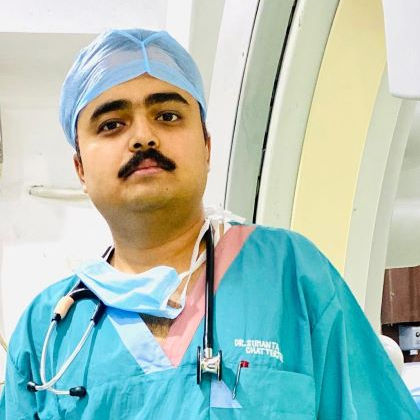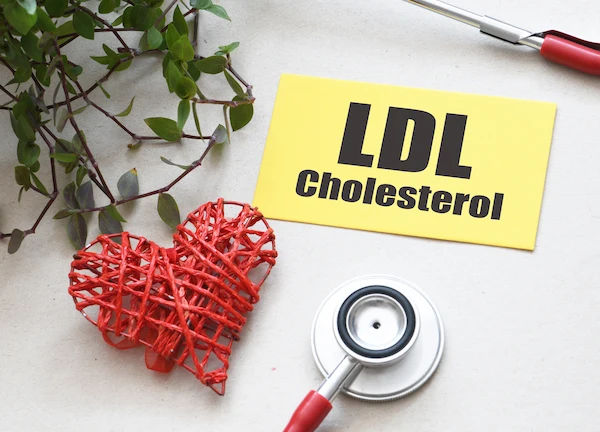Lipids Functions, Types, Food Sources and Risks
Learn about lipids, their essential functions in the body, different types, common food sources, and potential health risks associated with imbalance. Understand how to include healthy fats in your diet for overall wellness.

Written by Dr. Md Yusuf Shareef
Reviewed by Dr. D Bhanu Prakash MBBS, AFIH, Advanced certificate in critical care medicine, Fellowship in critical care medicine
Last updated on 25th Aug, 2025

Introduction
Lipids are an essential part of our diet and play a crucial role in keeping our bodies healthy. However, not all lipids are the same, and understanding them can help you make better food choices. In this article, we’ll explore what lipids are, their different types, their functions in the body, food sources, and the risks associated with imbalanced lipid levels.
What Are Lipids?
Lipids are a group of fats and fat-like substances found in the body and in foods. They are vital for energy storage, cell structure, hormone production, and nutrient absorption. While some lipids are beneficial, others can be harmful if consumed in excess.
Functions of Lipids in the Body
Lipids serve several important functions:
1. Energy Storage – Fats provide a concentrated source of energy (9 calories per gram), more than carbohydrates or proteins.
2. Cell Structure – Lipids form the outer layer (membrane) of every cell in the body.
3. Hormone Production – Certain lipids help produce hormones like estrogen, testosterone, and cortisol.
4. Vitamin Absorption – Fat-soluble vitamins (A, D, E, and K) need lipids to be absorbed properly.
5. Insulation & Protection – Fats cushion organs and help maintain body temperature.
Consult a Top Heart Specialist for the best advice
Types of Lipids
Lipids can be broadly categorized into different types:
1. Triglycerides
- The most common type of fat in food and the body.
- Stored in fat cells and used for energy between meals.
- High levels can increase heart disease risk.
2. Cholesterol
A waxy substance made by the liver and obtained from food.
- HDL (High-Density Lipoprotein): "Good" cholesterol that removes excess cholesterol from blood vessels.
- LDL (Low-Density Lipoprotein): "Bad" cholesterol that can build up in arteries, increasing heart disease risk.
3. Phospholipids
- Help form cell membranes and transport fats in the bloodstream.
4. Essential Fatty Acids (Omega-3 & Omega-6)
- Omega-3s (found in fish, flaxseeds) reduce inflammation and support heart and brain health.
- Omega-6s (found in vegetable oils) are needed in moderation; excess can cause inflammation.
Food Sources of Lipids
Not all fats are created equal. Here’s a breakdown of healthy and unhealthy sources:
Healthy Fats (Unsaturated Fats)
- Monounsaturated Fats: Olive oil, avocados, nuts (almonds, cashews).
- Polyunsaturated Fats (Omega-3 & Omega-6): Fatty fish (salmon, mackerel), walnuts, flaxseeds, sunflower seeds.
Fats to Limit (Saturated & Trans Fats)
- Saturated Fats: Found in butter, cheese, red meat, coconut oil (consume in moderation).
- Trans Fats: Found in fried foods, baked goods, and processed snacks (avoid as much as possible).
Risks of Imbalanced Lipid Levels
When lipid levels are too high or too low, they can affect health in different ways:
1. High Cholesterol (Hyperlipidemia)
- Excess LDL cholesterol can lead to plaque buildup in arteries (atherosclerosis), increasing heart attack and stroke risk.
- Low HDL cholesterol means less protection against heart disease.
2. High Triglycerides
- Linked to obesity, diabetes, and metabolic syndrome.
- Can contribute to pancreatitis (inflammation of the pancreas).
3. Low Fat Intake
- May lead to deficiencies in fat-soluble vitamins (A, D, E, K).
- Can cause dry skin, hormonal imbalances, and fatigue.
Tips for Managing Healthy Lipid Levels
Some effective tips to help you maintain healthy lipid levels and support heart health naturally:
1. Eat More Healthy Fats – Include nuts, seeds, olive oil, and fatty fish in your diet.
2. Reduce Processed & Fried Foods – Avoid trans fats and limit saturated fats.
3. Exercise Regularly – Physical activity helps lower LDL and raise HDL.
4. Maintain a Healthy Weight – Excess weight can increase cholesterol and triglyceride levels.
5. Get Regular Check-ups – Blood tests (lipid profile) can monitor cholesterol and triglyceride levels.
When to See a Doctor?
If you experience symptoms like chest pain, fatigue, or have a family history of heart disease, it’s best to get your lipid levels checked.
Final Thoughts
Lipids are essential for good health, but balance is key. By choosing healthy fats, staying active, and monitoring your levels, you can keep your heart and body in great shape. If you have concerns about your cholesterol or triglycerides, don’t hesitate to seek medical advice.
Consult a Top Heart Specialist for the best advice
Consult a Top Heart Specialist for the best advice

Dr. Tripti Deb
Cardiologist
40 Years • MBBS, MD, DM, FACC, FESC
Hyderabad
Apollo Hospitals Jubilee Hills, Hyderabad

Dr. Chandra Prakash Thakur
Cardiologist
5 Years • MBBS, MD ( Medicine), DM ( Cardiology)
Guwahati
Apollo Hospitals G S Road, Guwahati
Dr. Mahendranath Subramani Prasad
Cardiologist
16 Years • MBBS,MS ,DNB, M.Ch. Cardiovascular and Thoracic Surgery(Cardiology)
Bengaluru
Apollo Clinic, Sarjapur Road, Bengaluru

Dr. Sumanta Chatterjee
Cardiologist
12 Years • MBBS,MD General Medicine,DM Cardiology
Kolkata
HealthYou Speciality Clinic & Diagnostics., Kolkata
(25+ Patients)

Dr. Bhethala Sharan Prakash
General Physician/ Internal Medicine Specialist
5 Years • MBBS MD
Bengaluru
PRESTIGE SHANTHINIKETAN - SOCIETY CLINIC, Bengaluru
Consult a Top Heart Specialist for the best advice

Dr. Tripti Deb
Cardiologist
40 Years • MBBS, MD, DM, FACC, FESC
Hyderabad
Apollo Hospitals Jubilee Hills, Hyderabad

Dr. Chandra Prakash Thakur
Cardiologist
5 Years • MBBS, MD ( Medicine), DM ( Cardiology)
Guwahati
Apollo Hospitals G S Road, Guwahati
Dr. Mahendranath Subramani Prasad
Cardiologist
16 Years • MBBS,MS ,DNB, M.Ch. Cardiovascular and Thoracic Surgery(Cardiology)
Bengaluru
Apollo Clinic, Sarjapur Road, Bengaluru

Dr. Sumanta Chatterjee
Cardiologist
12 Years • MBBS,MD General Medicine,DM Cardiology
Kolkata
HealthYou Speciality Clinic & Diagnostics., Kolkata
(25+ Patients)

Dr. Bhethala Sharan Prakash
General Physician/ Internal Medicine Specialist
5 Years • MBBS MD
Bengaluru
PRESTIGE SHANTHINIKETAN - SOCIETY CLINIC, Bengaluru

 (1).webp)
.webp)
